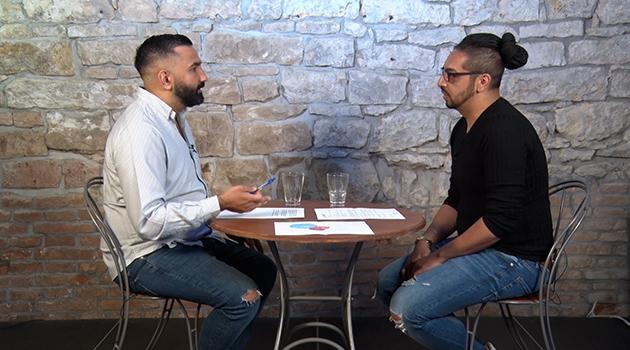Czech LGBT Romani activist says LGBT Roma are used to being scorned, but have their allies as well

“Many gays and lesbians who are Romani do not feel safe at home. Their relatives very often bully them and in some cases even assault them physically. On the other hand, however, I have the feeling that among Romani people their relationship towards the LGBT community is gradually improving. There are more Romani people who even support us. At least in the Czech Republic,” says David Tišer, the Czech Republic’s first LGBT Romani activist, winner of the František Kriegel award and director of the ARA ART organization, the only one in the world focused on the rights of the LGBT Romani community, in an interview for ROMEA TV.
Tišer responds in the interview to the recent homophobic commentaries posted by some Romani social media users. This latest wave was in response to a dispute arising between the actor and singer Jan Bendig and guitarist Tibor Žida about the television series “Devilish Gypsy Women” (Ďábelské cikánky) among other matters.
“I am basically accustomed to that type of commentary. I have also written a statement condemning such behavior. That entire incident has absurdly and unnecessarily been turned against the LGBT community,” Tišer says.
According to the activist, bisexual people, gays, lesbians and trans people who are Romani face multiple discrimination. They experience discrimination not just from the majority society because of their ethnic origin and/or sexual orientation, but also directly from the LGBT community itself, paradoxically, as well as from Romani society.
“In Prague we held a workshop where LGBT Roma from all over the world came together,” the activist describes. “When we tried to go to a nightclub together, they didn’t want to let us in because we are Romani.”
ARA ART runs an online advice service for gay and lesbian Romani people in particular. Romani people whose families bully or reject them because of their sexuality can seek counseling there.
Romani people who are afraid to come out to their loved ones can also call the service for advice. In the interview, Tišer welcomes the first legislative steps taken recently in the Czech Republic to legitimize marriage between persons of the same sex.
After three years of delay, Czech lawmakers have moved a bill to that effect forward for a second reading. Same-sex marriages sanctioned by the state are currently possible in 29 countries globally, 16 of which are in Europe.
Most of those states also make it possible for same-sex couples to adopt children. Marriage between same-sex partners was most recently made lawful in Costa Rica last May.
